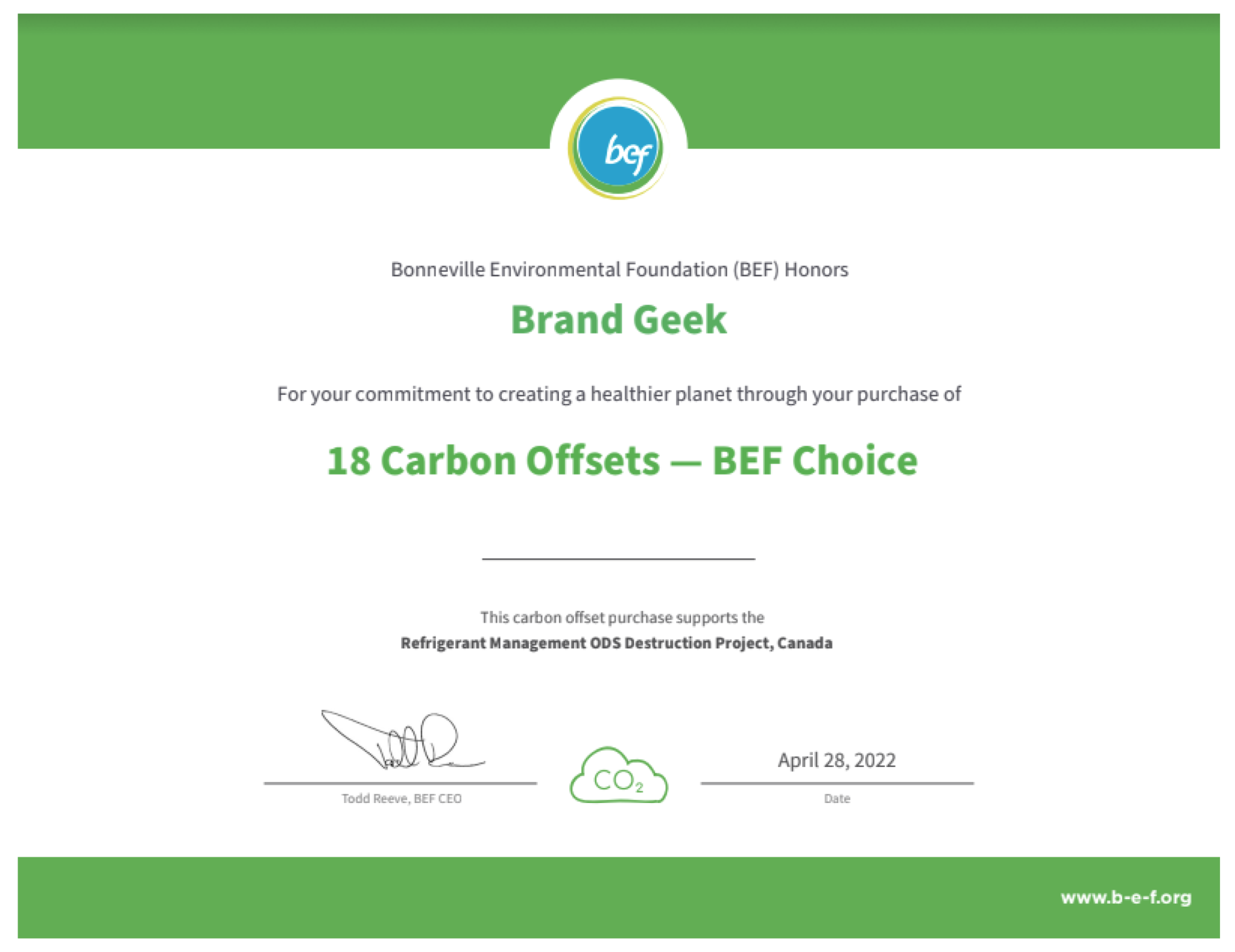Brandgeek proudly supports Mountain Area Preservation and is humbled to be…
URBAN HOMSTEADING tm(?)
I recently attended SVN (Social Venture Network’s) Spring Gathering, where socialpreneurs convene to inspire and be inspired. My favorite thing about SVN, is of course, the people. Everyone has an amazing story about their journey to make the world a better place, and everyone wants to help each other. One woman with whom I got to partner during one of the sessions was Kat Steele, Sustainable Development Manager at Esalen Institute (what a cool job Kat has!). Upon learning that I am a trademark attorney, Kat asked if I was familiar with the URBAN HOMESTEAD case, which I had to admit I wasn’t. Kat said that she’d heard (here comes some hearsay) that a group was claiming trademark rights in the term URBAN HOMESTEADING. With only limited knowledge on the subject (obviously!) I’d used this term generically before to describe the practice of communal urban/city farming & agriculture. Hence, I thought it best to investigate.
I began with my good friend, TESS, on which I searched the PTO‘s database for any trademark registration applications that include the terms URBAN HOMESTEAD. I found one! URBAN HOMESTEAD is a federally registered mark for:
[framed_box]Educational services, namely, conducting informal programs in the fields of sustainable living, organic foods and gardening, homesteading, the environment, and conservation, using on-line activities and interactive exhibits; entertainment services, namely, providing a web site featuring photographs and audio and video recordings featuring instruction and current events reporting on sustainable living, organic foods and gardening, the environment, and conservation; on-line journals, namely, blogs featuring the subjects of sustainable living, organic foods and gardening, the environment, and conservation.[/framed_box]The URBAN HOMESTEAD mark was registered to Dervaes Institute just last year, on October 5, 2010. The registration states a first use date of January, 2003. It also includes a 2(f) Claim, meaning that the Dervaes received a “merely descriptive” refusal, which it overcame through evidence of acquired distinctiveness (via a 200(!) page office action response). Now that I knew Dervaes owned the URBAN HOMESTEAD trademark registration, I researched its other trademark registrations and applications by searching for Dervaes in the “owner name” field in TESS. Dervaes owns 18 LIVE registrations (15) and applications (3). Of these, there’s the aforementioned recent registration for URBAN HOMESTEAD and a slightly older one for URBAN HOMESTEADING for:
[framed_box]Educational services, namely, conducting informal programs in the fields of sustainable living, organic foods and gardening, homesteading, the environment, and conservation, using on-line activities and interactive exhibits; entertainment services, namely, providing a web site featuring photographs and audio and video recordings featuring instruction and current events reporting on sustainable living, organic foods and gardening, the environment, and conservation; on-line journals, namely, blogs featuring the subjects of sustainable living, organic foods and gardening, the environment, and conservation[/framed_box]The URBAN HOMESTEADING mark was first used on March 6, 2002 and it became registered on June 2, 2009 on the Supplemental Register (the “waiting room” where descriptive terms sit until they acquire the secondary meaning — aka, brand recognition — necessary to become marks). On April 11, 2011, Denver Urban Homesteading (DUH) filed a Cancellation Proceeding (here) against Dervaes’ URBAN HOMESTEADING registration. The Petition alleges that Dervaes used its Supplemental Registration of URBAN HOMESTEADING to disable DUH’s FaceBook page, causing DUH economic harm. The Petition also predictably claims that “urban homesteading” is generic for the services listed in Dervaes’ registration. In support of this argument, DUH states:
[framed_box]There are numerous urban homesteading meet-up groups in the U.S. organized on Meetup.com;
There is The Institute of Urban Homesteading in Oakland, CA;
One of the earliest books on Urban Homesteading [sic] is dated 1975;
The terms “urban” and “homesteading” are generic;
The term “urban homesteading” is commonly used in business, by the general press, the public, and the Dervaes Institute itself as the generic name for describing sustainable city living including gardening, chicken and goat keeping, bee keeping, etc. [/framed_box]
Yikes! While Dervaes need not have “coined” the term to acquire trademark rights in it, it sure won’t help if Dervaes uses the terms “urban homesteadsing” descriptively (or worse yet, generically) within its own materials.
The Cancellation complaint also confirms something Kat had heard — that some folks had received C&D letters from Dervaes for unlicensed use of the URBAN HOMESTEAD or URBAN HOMESTEADING marks. On February 16, 2011, Dervaes stated on its website, “Please find the “cease & desist” phrase in this normal, professional and informative letter. It’s a false, made up claim that people are jumping over themselves to make us look bad:”
[framed_box]DERVAES INSTITUTE
Jules Dervaes,
Presiding Officer
631 Cypress Avenue Pasadena, CA 91103
(626) 795-8400
<E-mail removed>
To Whom It May Concern:
This notice is to inform you of important matters regarding the published works and/or brand names of Jules Dervaes and Dervaes Institute. We are extremely supportive of members of our online communities; fans of our websites, writings and photographs; and others who help to spread information regarding sustainable living. However, we must also guard against the unauthorized use or exploitation of our intellectual property for commercial gain. From the beginning, our work published online and in other media has been copyrighted and trademarked. We have now secured registered trademarks for certain unique names and images. By protecting our intellectual property we are better able to ensure that our work is presented accurately and contributes to our sustainable living projects and educational initiatives.
As you may know, the Dervaes family has been practicing sustainable living in Pasadena, Calif., since 1985. Our work has been documented and shared online at www.urbanhomestead.org and other websites since 2001, receiving national and international media attention. Additionally, we produced an award-winning short documentary film about our project, called Homegrown Revolution, which has been featured at film festivals around the world and on Oprah’s 2009 Earth Day television special. Over the last 25 years, our family has created a wealth of intellectual property in the field of sustainable living. Through the Dervaes Institute, we have been committed to freely educating others about the practices and benefits of self-sufficiency.
We realize that your use of Dervaes published words and/or trademarks may have been inadvertent. We are generally able to resolve any such uses without involving our legal counsel. This would require that you update your websites and articles to properly cite our works. For example, the writings of Jules Dervaes about sustainable living are original protected works in which Dervaes owns exclusive rights. Content from the Dervaes websites, including text and photographs, are also protected works.
When using Dervaes materials, the proper way to go about it is as follows:
* Only use a small sample of our work in any single instance;
* Copy the portion used in its entirety – do not paraphrase or extract portions of images or paragraphs;
* Make it clear – by using quotation marks or different font size or color – that the Dervaes materials referenced are from another source;
* Include a prominent link or reference to the original source of the content used on a Dervaes website.
In addition, Dervaes Institute owns numerous trademarks which should be properly acknowledged if used. These protected names and images include the following registered trademarks:
* URBAN HOMESTEAD®
* URBAN HOMESTEADING®
* PATH TO FREEDOM®
* GROW THE FUTURE®
* HOMEGROWN REVOLUTION®
* FREEDOM GARDENS®
* LITTLE HOMESTEAD IN THE CITY®
* Also, THE TEN ELEMENTS OF URBAN HOMSTEADING copyright has been filed with the Library of Congress.
If your use of one of these phrases is not to specifically identify products or services from the Dervaes Institute, then it would be proper to use generic terms to replace the registered trademark you are using. For example, when discussing general homesteading or other people’s projects, they should be referred to using terms such as ‘modern homesteading,’ ‘urban sustainability projects,’ or similar descriptions.
When using a phrase listed above to refer to the work of the Dervaes Institute, proper trademark usage should include the proper trademark notice [®], use the protected phrase in all capital letters, and note in close proximity that the term is a protected trademark of Dervaes Institute.
Thank you in advance for respecting our legally protected intellectual property rights. If you have been supportive of our ten-year online work in the past, we appreciate very much your continued support. If you have any questions regarding the use of Dervaes materials or trademarks, please contact us at (626) 795-8400. We would be glad to provide you with more details.
Regards,
Jules Dervaes, Dervaes Institute[/framed_box]
While I am sure that Dervaes sends this letter to folks who are misusing its marks, I have a sneaking suspicion that infringers get a different kind of letter.
In fact, attachments to the URBAN HOMESTEADING Cancellation proceeding include more forceful letters from Dervaes and its counsel that expressly threaten suit if marks incorporating the terms URBAN HOMESTEAD are not abandoned. Granted, demanding abandonment of infringing marks is wholly within reason and lawsuits sometimes are a necessary evil in the process of trademark enforcement. What’s most interesting in this case is whether URBAN HOMESTEADING is/will be deemed generic. While I’m still uncertain how and to what extent the words “urban” and “homesteading” were used together before Dervaes acquired its federal trademark registrations, what matters now is now. Although Merriam-Webster does not contain a definition for URBAN HOMESTEAD, Wikipedia has an entry for URBAN HOMESTEADING (which even discusses the trademark controversy). To succeed in its Cancellation Proceeding, DUH must prove that consumers perceive URBAN HOMESTEADING to be generic rather than as a trademark. For this reason, this is a case to watch.
 Always do your homework! Just because you believe a term to be generic (or you think it should be generic) doesn’t mean it is. Mind your marks!! Although generic terms never can become trademarks, trademarks can fall prey to genericide if they lose their brand significance and become the term for something rather than a brand of it.
Always do your homework! Just because you believe a term to be generic (or you think it should be generic) doesn’t mean it is. Mind your marks!! Although generic terms never can become trademarks, trademarks can fall prey to genericide if they lose their brand significance and become the term for something rather than a brand of it.




hello – thanks for the informative explanation of the trademark controversy. Our publisher got a letter for our newly released book entitled, of course, “Urban Homesteading” and the first one was absolutely the same one you printed in this posting. The second one, however, was a bit more strongly threatening a law suit if there was further infringement. As far as I know, the letter you reprinted here is mostly the letter that was sent.
Also, the Denver Urban Homesteading folks filed the 2nd petition against the mark. Electronci Frontier Foundation filed the first one against the Dervaes Institute on behalf of Kelly Coyne and Erik Knutsen and their publisher, for their book “The Urban Homestead.”
The terms “urban ” and “homesteading” absolutely were in use before the Dervaes Institute received their trademark. That’s the whole point – it’s been used by different organizations, schools, books, and in common parlance for some time–this is why we believe that this is a generic, non-descriptive term, a cultural meme in effect, which has no business being trademarked.
again, thanks for your good thinking about this issue.
Thanks for reading and participating with my blog, Rachel.
I just found the Cancellation Proceeding filed against the URBAN HOMESTEAD and URBAN HOMESTEADING registrations by Kelly Coyne, and Erik Knutzen, and Process Media, Inc. (an independent book publisher) on the ground of genericness. Their attorney is listed as Jennifer A. Golunveaux of Winston Strawn (Winston is one of those firms that what we lawyers call “Big Law”). The only evidence I found of EFF’s involvement in the action is that Corynne McSherry is listed as co-counsel on the Cancellation pleadings. Please do share more about the connection between EFF and this matter if you have information regarding it.
Also, it strikes me as really overreaching that Dervaes would send C&D letters to authors & publishers, as the title of a single work is unprotectable under trademark law (as discussed in my December 2, 2010 blog post: http://brandgeek.net/dev/dev/dev/2010/12/02/silly-suit-over-east-of-sunset-film-title/)
Thanks again, Rachel!
Excellent article! I started a fb page 2 months ago when we became aware of what the Dervaes were doing. We have grown to over 7000 people. Denver Urban Homesteading has also started a new page for legal documents/discussions regarding the case: http://www.facebook.com/pages/Take-Back-Urban-Home-steadings/167527713295518
http://www.facebook.com/pages/Denver-Urban-Home-steading-Trademark-Issue/148774315190090
Wow! Thanks for reading and participating with my blog, April, as well as for the links to DUH’s and your Facebook pages on this trademark dispute. I appreciate it!
The first time I encountered the phrase “urban homestead” was in 1990.. at a real estate office. That was the way a property was listed.. as an Urban Homestead. In short the meaning was a descriptive term for a larger than average plot in town that as well contained assorted outbuildings. (Workshop, chicken coop, potting shed)
The term has been around for several decades already.. and in extremely similar context.
Thanks, Anne. As I mentioned in the blog, before encountering Kat at SVN, I too had only heard the term “urban homestead” used in a descriptive or generic context. Hence, I presumed the term to be generic until I did some research and learned of the ownership rights being claimed in the mark. My guess is that the Dervaes registrations will be canceled based on genericness, though only time will tell for sure.
I have homesteading books from the turn of the 20th century using those terms i.e. urban homestead. It was a fairly popular term in the 60’s and 70’s. I will definately be watching this one.
Thanks for reading and commenting on my blog, Robert. I see your blog, http://suburbhomestead.wordpress.com/, is a take on the urban homestead concept, so I can see why this case is of interest to you. While I hope this dispute will get resolved quickly, I doubt that is likely. The Dervaes folks are unlikely to cede the rights that come from their trademark registrations without a BIG fight, which is unfortunate for all involved.
The term “urban homestead” has been in general use at least since the mid-1970’s. Mother Earth News published an article about the Integral Urban House, an urban homestead/solar power/retrofitting project in Berkeley which began in 1974. The MEN article was published in 1976. It referred to the IUH and other similar projects in the US and other countries as urban homesteads, and it did not need to define or explain the term because it was in common use already. There was a book, The Integral Urban House, written by Bill and Helga Olkowski. I don’t have my copy any more, but it would be interesting to see if they also used the terms in the book, which was published in the mid or late 1970’s, possibly 1979.
Thanks, Judith! Terms that have been used before — even descriptively — can become trademarks if the entity that co-opts them builds brand recognition in them. The real question here is not whether the term was used descriptively or generically before its alleged adoption by Dervaes, but how it now is perceived by the consuming public.
Lara Pearson,
Thanks for your interesting review.
Denver Urban Homesteading
You’re welcome, James. BTW — I love your acronym! DUH is a duh-ble entendre, both as an acronym for Denver Urban Homesteading and a sentiment about the means by which city dwellers can live sustainably, duh! Thanks for the good work you and your organization do and good luck with your TTAB proceeding.
Apart from the technicalities of whether a term can be trademarked appropriately – there is the notion that you can win the battle but lose the war.
The Dervaes were well regarded before this – and they have managed in this effort to alienate a huge percentage of the “community” that would have been customers, collaborators, and admirers. Such a loss to all, that people doing this important work should have to expend energy splitting hairs rather than in supportive collaboration. Really – them taking these actions – a sad day for all, and how the landscape of former admiration has changed to distaste.
Thank you for reading and making the time to comment, Monica.
I agree that it is unfortunate that the Dervase took such a strictly legal approach to this and apparently did not think through the direct and indirect consequences of being so hard-lined. Plus, it seems to me that the time to enforce trademark rights in URBAN HOMESTEADING would have been at the inception of launching the “brand,” not after everyone in the community had adopted it as part of their brands or used it generically.